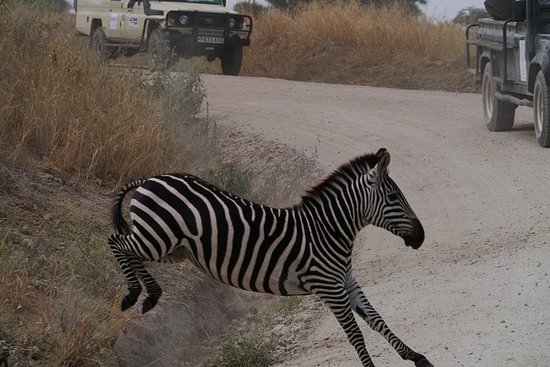
Key players in Tanzania’s tourism and hospitality industry and the country’s National Assembly have agreed to work hand in hand in guaranteeing the industry with the due priority it needs for driving the national economy.
The Tanzania Association of Tour Operators (TATO) and Hotel Association of Tanzania (HAT) delegation recently engaged Parliament Speaker Job Ndugai in Dodoma in their latest attempt to lobby for fair treatment of the industry.
Thanks to the USAID PROTECT for building the capacity of TATO, an umbrella organization with over 300 members, it became an efficient advocacy agency for the tourism sector.
During their round-table discussion with the Speaker, the TATO and HAT team briefed Mr. Ndugai on a rough patch the multi-billion-dollar industry is passing through as a result of unfriendly and inconsistent policies.
“The industry needs the intervention of your august office now [more] than ever before,” the TATO Trustee and founder Chairman, Mr. Merwyn Nunes, told him.
A myriad of taxes and levies imposed on the industry were not only making the business environment unfriendly but also tagging Tanzania globally as a non-competitive tourism destination, Mr. Nunes explained.
Going by available records, a tour operator in Tanzania is subjected to 32 different taxes, including business registration, regulatory licenses fees, entry fees, income taxes, and annual duties for each tourist van.
Findings of a study on Tanzania’s tourism sector indicate that administrative burdens of completing the license tax and levy paperwork alone place a heavy cost on businesses in terms of time and money.
A tour operator, for instance, spends over 4 months to accomplish regulatory paperwork, let alone tax and license paperwork consuming a total of his 745 hours per year.
An average annual cost of personnel completing regulatory paperwork per local tour operator stands at $1,300 a year, the joint study by the Tanzania Confederation of Tourism (TCT) and BEST-Dialogue shows.
“We really need new ways and means, especially at policy-making levels, if the industry is to turn around the economy,” chipped in the TATO Vice-Chairman, Mr. Henry Kimambo.
The major concern of the HAT Chief Executive Officer, Ms. Nura-Lisa Karamagi, was over the Ministry of Livestock Development and Fisheries’ inspections embarrassing investors in hotels and campsites with unfair penalties for insignificant deficits.
Notwithstanding challenges facing the industry, tourism and hospitality earn Tanzania’s economy about $2.05 billion per annum, equivalent to 17 percent of the country’s GDP.
TATO CEO, Mr. Sirili Akko, said tourism is a sure way to turnaround the country’s economy because it is not consumptive.
“Tourists come just to see for their eyes and take photos and leave behind $2 billion annually. It is high time we give tourism its due attention for it to grow and spur other sectors of the economy,” Mr. Akko noted.
Speaker Ndugai expressed his gratitude to the TATO and HAT delegation for its initiative, as he pledged to support its bid of turning tourism into a national priority sector.
Mr. Ndugai called on TATO and HAT to sustain the partnership they forged with the House in a bid to resolve the investment climate hiccups and other challenges denying tourism national priority.
According to its national 5-year marketing blueprint, Tanzania anticipates hosting 2 million tourists by the end of next year, boosting its revenue from the current $2 billion to nearly $3.8 billion.
No comments:
Post a Comment